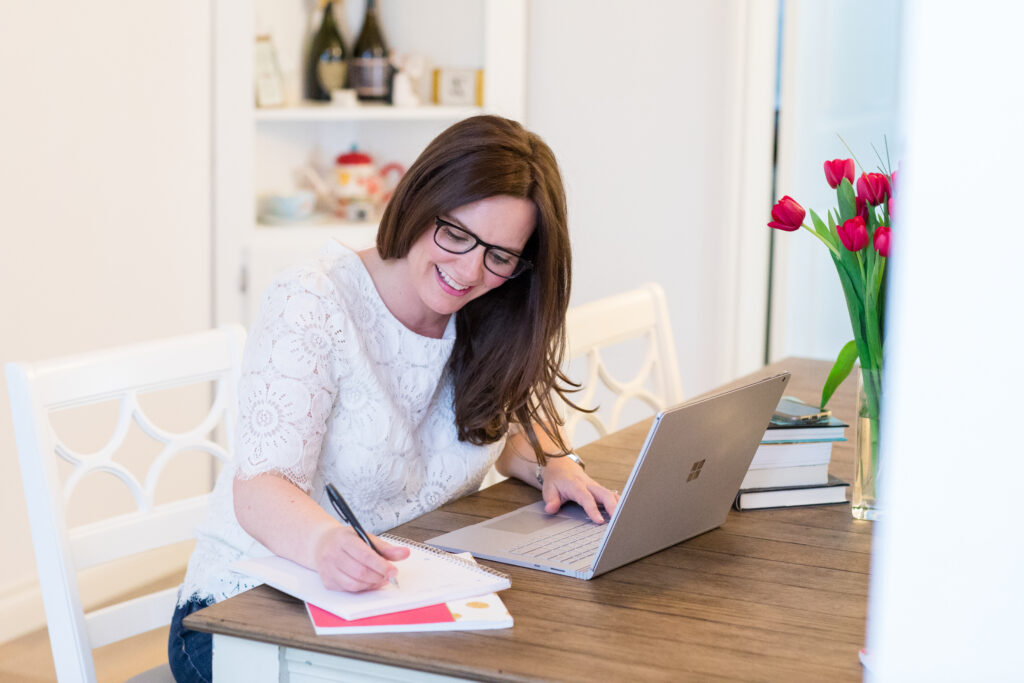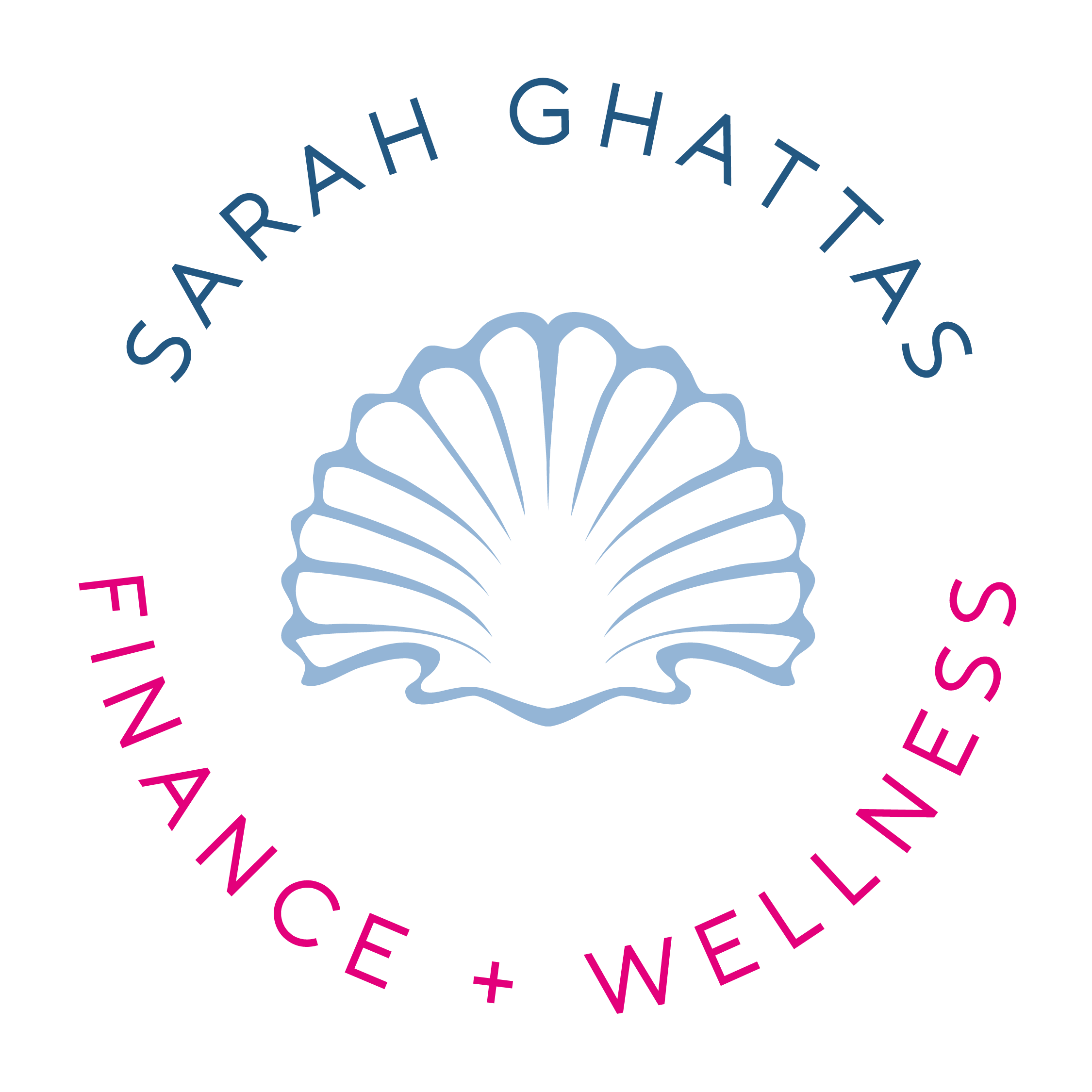“The best time to plant a tree was 20 years ago. The second-best time is now.” – Chinese Proverb
It’s common to feel like you are left behind or have left it too late to start getting a handle on your finances, but I’d like to challenge you to believe that it’s never too late. Starting to act now is planting the seeds for the future. If you start now, by the time you want to retire in your sixties or seventies, using the power of compound interest, you will have set yourself up for a more prosperous retirement. Educating yourself now not only helps your future self but will give you the knowledge to pass on to any children and have them benefit from starting to save and invest earlier on.

I know from experience how it feels to be “behind” with money and life in general, but with some grit and determination, I managed to gain control of my finances and change my future trajectory. In my mid-thirties, I got divorced. I started out my newly single life with $60,000 of debt (credit cards and loans). The debt was accumulated during the marriage due to living a lifestyle beyond our means. When I found myself single again, it was a huge reality check. Though I was earning a good salary, I realized I had only myself to rely on and I was severely at risk if I ever lost my job. In less than 4 years, I paid off that debt, after having been in debt since college. Once I’d paid it off, my savings and investments grew quickly. Just a year and a half after paying off the debts, at the age of 38, I bought a house with my new husband (contributing half of the 20% downpayment) and after 5 years my net worth had grown to over 7-figures. I started to experience the benefit of compound interest working for me through my savings and investments, vs against me in the form of credit card interest.
The moment I decided to get control of my money was a life-changing decision. I didn’t dwell on the fact that, at the time of my divorce, all my friends seemed to be on the “right track” timewise: owning homes, married, having children. Everyone’s journey is their own and you are on your own unique path. It’s never too late to start. You can turn things around. Even if it seems daunting and overwhelming. The key is to start taking action, one small step at a time.
The Power of Starting Late: Why You’re Not Behind
My story demonstrates that, with a shift in mindset, you can change your path. Like the Chinese proverb says, the next best time to start is now. It doesn’t matter where you are. But if you don’t change something, you will continue on the same path.
In your 30s and 40s you now have valuable life and career experience that can help you take better financial decisions than when you were younger. You know who you are, your values and what’s important to you. You will hopefully also be earning more than in your 20s and therefore you can more quickly make headway in paying off debt, saving and investing.
Avoid comparing yourself to your friends or people on social media. Everyone has different life experiences that shape their views on money. Your friends may have had parents who were very financially savvy and taught them how to manage their money. There’s no education at school around personal finance. Growing up, the only way to learn is through your family. And we all know that social media often only shows a distorted reality. You must focus on your own journey. YOU are who matters.
Facing Debt and Financial Insecurity in Your 30s and 40s
If you feel ashamed about your financial situation, the first place to start is to give yourself and break and know that you are not alone. There is no shame. Many, many people are in debt. In fact, according to Bankrate’s Credit Card debt survey, 50% of Americans carry a balance from month to month and 36% of Americans have more credit card debt than emergency savings. With interest rates currently sky high, it’s much harder to pay down debt. Debt is built into the fabric of our society and many professional women have debt due to education costs, family, and changes in career. But don’t let this deter you from taking control and making a change.
My debt balance was $60k when I got divorced and made the decision to pay it off. By the time I had paid it off, I paid an additional $15k in interest (for a total of $75k). Had I not taken those steps at that time, who knows how much interest I would have ended up paying. That’s why even though it feels hard and scary to tackle it, just getting started helps stop losing more money to interest. I focused on making debt payments a priority and cutting back drastically on my spending. Each time I paid off a credit card or loan, I took that monthly payment and applied it to another debt, so I was paying more than the minimum. As time went by, the debts got paid off faster and faster because I was paying more towards each debt after I’d paid off another one. At the same time, I was trying to save a little money ($100 a month) to keep in an emergency fund. I was also putting the minimum required in my 401k in order to get the full company match. Gradually, over time I was able to increase that amount, so I was maxing out my 401k contributions. Once all my debt was paid off, I was able to save in a high yield saving account and keep contributing to my 401k. I also started investing a little through a brokerage account.
You can do the same. The first step is to acknowledge where you are and stop feeling ashamed about it. Instead feel proud that you are taking action to change things. Then you need to get clear on your debts by listing them out, including current interest rates and seeing what the overall big picture is. Next, look at your expenses and see where you might be able to cut back so that you can pay additional amounts towards your debt each month.
Why It’s Never Too Late: Key Reasons to Start Now
Time is your greatest asset when it comes to building wealth due to the magic of compounding. This is the concept that you earn interest on your initial deposit as well as your interest. Say you are 45 and plan to retire at 65, let’s take a look at how $100 per month saved in a regular savings account would grow over 20 years vs in a high yield savings account (“HYSA”) vs investing in the stock market:
| Investment Type | Total cash invested | Annual return % | Earnings | Total after 20 years |
| Regular savings | $24,000 | 0.01% | $24 | $24,024 |
| High Yield Savings Account | $24,000 | 3%* | $8,830 | $32,830 |
| S&P 500 Index | $24,000 | 8%** | $30,914 | $54,914*** |
* Current HYSA rates are closer to 5%
** This average return of 8% is conservative – the S&P 500 has historically returned an average of 10.7% annually since it began in the late 50s.
*** Note here that earnings of $30,914 are greater than the actual cash you put in.
Let’s take a look at that same example but assume you start at 35 and plan to retire at 65, with earnings therefore over 30 years.
| Investment Type | Total cash invested | Annual return % | Earnings | Total after 20 years |
| Regular savings | $36,000 | 0.01% | $54 | $36,054 |
| High Yield Savings Account | $36,000 | 3%* | $21,091 | $57,091 |
| S&P 500 Index | $36,000 | 8%** | $99,940 | $135,940*** |
* Current HYSA rates are closer to 5%
** This average return of 8% is conservative – the S&P 500 has historically returned an average of 10.7% annually since it began in the late 50s.
*** In this case your earnings are almost 3x the actual cash you put in.
Imagine, instead in the last scenario, you were putting away $1,000 a month instead of $100. You would have almost $1.4 million by the time you retired and almost $1 million of that would be earnings on your investment. That’s the magic of compound interest!
If you want to play around with this example, take a look at the following calculator on Bankrate.com: https://www.bankrate.com/banking/savings/compound-savings-calculator/

Practical Steps to Take Control of Your Finances Today
If you are inspired to get started by taking control of your finances, here are four practical steps that you can take starting today. Remember, good financial habits (like any habit) are not about perfection, but about consistency. Small, consistent habits lead to big results.
- Step 1: Assess Where You Are
The first step is to figure out your current financial status: what is your income, expenses, debt, and savings. - Step 2: Set Clear, Achievable Financial Goals
Next you need to figure out the end goal. It’s difficult to take steps when you don’t know what the end goal is so take time to set some long-term and short-term goals to match your values. Short-term goals might be saving for a vacation or a wedding. Longer-term goals might include saving for a downpayment for a home or retirement. Figure out how much you need to save for each and then using a calculator similar to the one linked above, and you can work out how much you need to save each month. - Step 3: Build a Budget That Works for You
My budgeting method was zero-based budgeting. That means you allocate a place for every single dollar of your income/paycheck each month. Work out your fixed costs (e.g., rent, car payments) and your variable costs (e.g., groceries, gas). Factor in your debt payments and try to build in additional amounts for paying down extra towards one of the debts each month. Also allow for things that bring you joy or that you value. Budgeting is not about being completely restrictive. It’s about spending money on necessities and then on things that you personally value. On my journey, as a busy professional, even though I was paying down debt, I still allowed for a house cleaner every three weeks in my budget. Cleaning was one thing that I didn’t want to spend my time doing on weekends. I had to cut back in other places, so I really dialed it back on clothes purchases, only buying things I needed and loved – buying pieces that could work with multiple outfits. Everyone has different values and that’s why what you choose to spend on is unique and personal to each individual. - Step 4: Start Saving and Investing
Even if you have debts to pay down, try to save just a little each month and take advantage of any company matching in a 401k. Since a 401k is automatically deducted from your paycheck, you won’t ever see it in your account, so you won’t miss it. Similarly, set up automated monthly savings to get transferred out of your bank account and into a HYSA each month. You can start small and gradually increase it as your debts are paid down and/or your income goes up.
The Emotional and Mental Shift That Comes with Financial Control
Although it might feel overwhelming to get started, I can assure you from experience, that taking control of your finances will not only improve your bank balance but your overall well-being and mental health. I remember waking up frequently in the early hours of the morning worrying about money. My thoughts would go to the what-if scenario of what might happen if I suddenly lost my income. I felt like my whole life could crumble at any minute. Once I started making some progress, I felt proud of what I was achieving, and I felt empowered. Once I was debt-free, I no longer worried about money, and it was a huge burden that was relieved.
Budgeting don’t have to feel restrictive. When you set an intentional budget, you will feel that you are in control. It will feel good to recognize that you have managed to stay within budget and when you pay off that last debt, you will feel elated. It will make you realize that anything is possible in life when you set goals according to your values. You will have confidence in your own decision making and setting of life priorities.
Your Future Self Will Thank You
I encourage you to take one first step today, whether that’s reviewing your bank account, getting together a list of debts, writing down your goals for the next 5 years or even scheduling a time to look at your finances. The first action is all it takes to get started.
I am proof that it’s never too late to take control of your financial future. I was in debt until the age of 36. I didn’t purchase my first home until the age of 38. I got remarried at 38 and I had my first child at 41. You can change your journey starting today – it doesn’t matter where you are right now. All it takes is one decision to change your future. Your future self will thank you.
If you want help in taking that first step, take part in my Seven Days to Save $100 Challenge by signing up here! You will also be notified when there’s a new blog post.
